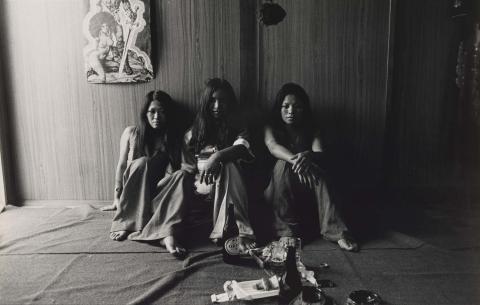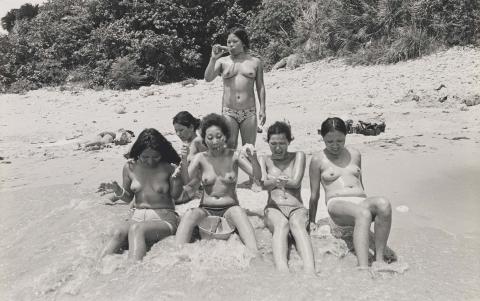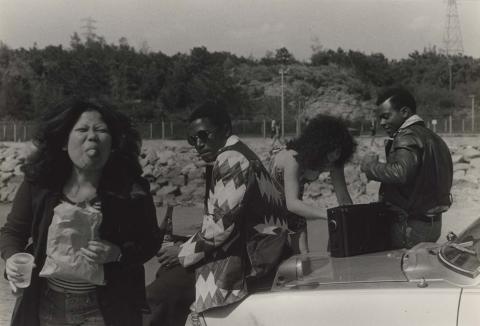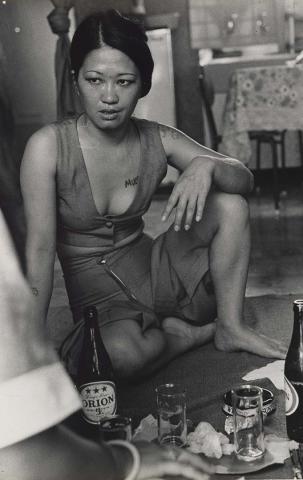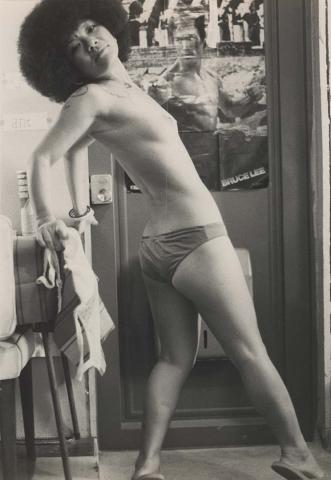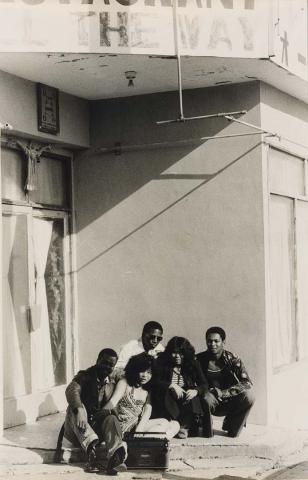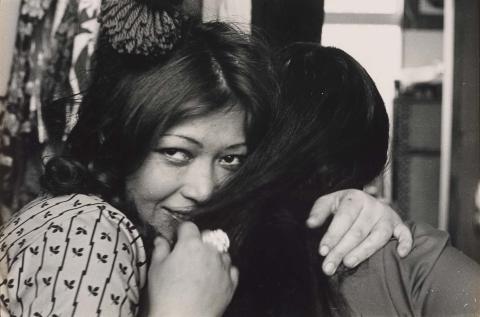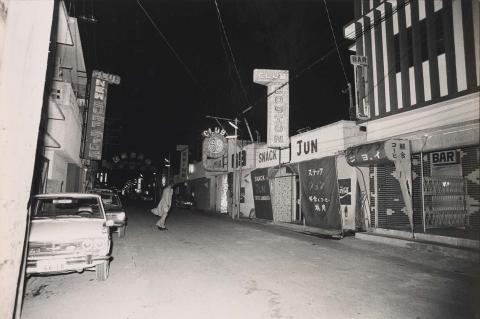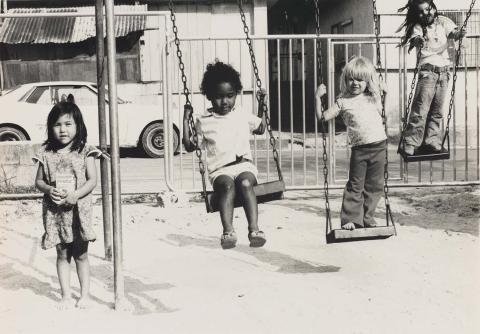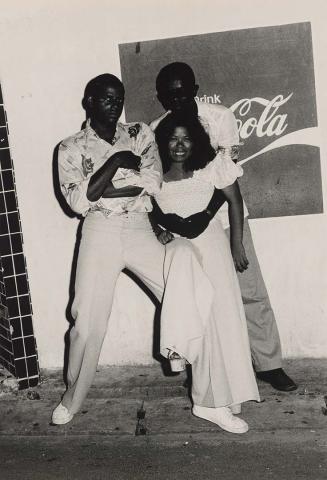Mao Ishikawa
APT9
Born 1953 Ogimi, Okinawa, Japan
Lives and works in Tomigusuku, Okinawa, Japan
Mao Ishikawa has developed an extensive body of work, oriented toward figures on the margins of society and challenging accepted power structures. Born and raised in Okinawa, she studied photography in Tokyo before returning to her home to photograph the island and its people in 1975. Eager to address Okinawa’s complex racial and sexual politics in the aftermath of its return to Japanese sovereignty in 1972, Ishikawa began photographing the African American servicemen who frequented the bar in which she worked, and the Okinawan women who challenged social taboos by dating them. Some of these prints were only recently rediscovered and published by her daughter. In 2013, Ishikawa began a new series that she considers her life work, a narrative of Okinawan history from its time as an independent kingdom to its current struggles in shouldering the burden of Japan’s US military bases.

For over 40 years, photographer Mao Ishikawa has documented daily life in her home of Okinawa. Ishikawa was born and raised in a society under occupation, and came of age during the island’s ‘Reversion’ from US control to Japanese sovereignty in 1972. Okinawa experienced some of the worst fighting of World War Two, resulting in 90 per cent of its buildings being razed, and the loss of almost half its population. Subsequent US occupation, which lasted 20 years longer than it did in mainland Japan, was deeply unpopular. The Reversion also provoked deeper questions about the nature of Okinawan identity as a culture distinct from that of mainland Japan.
Through photography, Ishikawa explores Okinawa’s complex racial and sexual politics. Her images focus on individuals and communities from across Okinawan society, from shopkeepers and farmers to more marginal figures, like nightclub workers and day labourers. Soldiers figure prominently, as do the frequent protests by locals against the US bases; however, Ishikawa photographs from a perspective of genuine friendship and empathy, as she explains: ‘I hate the US military, but I love US soldiers’.
As the works from across the artist’s career demonstrate, Mao Ishikawa’s images convey the strong emotional connections that characterise what she terms ‘Okinawa soul’, and the works on display in APT9 highlight her unique approach to the complicated history of her homeland.
